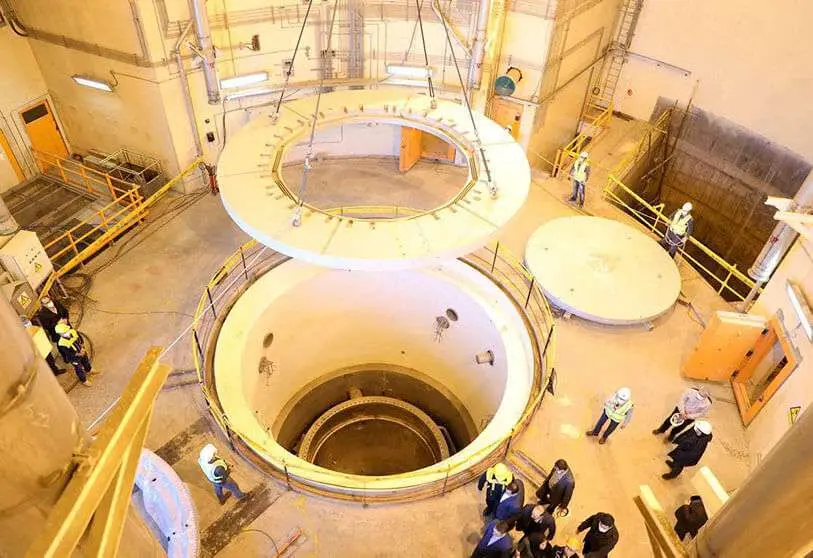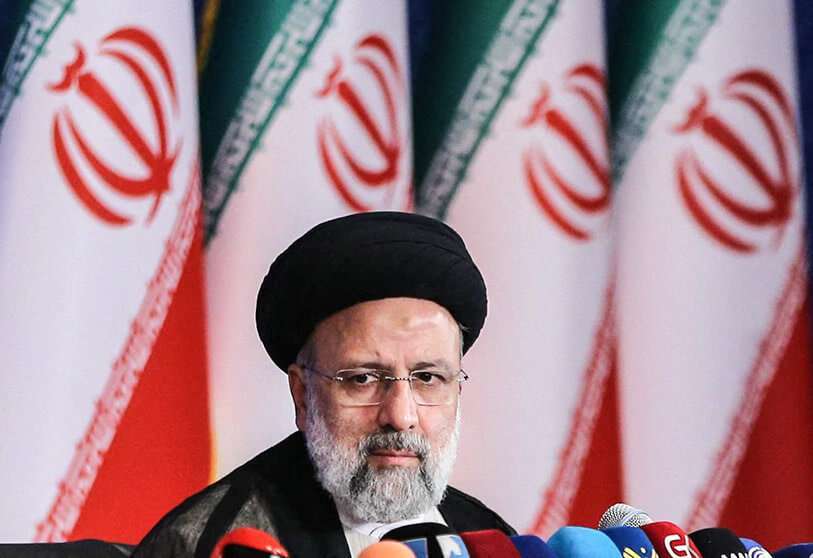Iran takes a "very negative step" in uranium enrichment

"Iran has no plausible civilian justification for these steps and is instead acquiring military knowledge and skills," a German foreign ministry spokesperson told a press conference. In addition, the German foreign ministry "urges Iran to return to the negotiating table with a constructive stance". As has been the case for some time now in Iran, violations of the Joint Comprehensive Plan of Action (JCPOA) are a constant, which now goes a step further and makes the country headed by Ebrahim Raisi even more dangerous.
The latest report by the International Atomic Energy Agency (IAEA) is even more worrying. According to the report, Iran is said to have expanded its uranium enrichment to a level almost sufficient to produce atomic weapons. The second production unit that became operational at its Natanz nuclear facility - which was sabotaged a few months ago - is enriching uranium to a purity of up to 60 per cent, far exceeding the limit set in the 2015 international pact.

The multiple meetings and negotiating tables that have tried to bring Iran back to the JCPOA after abandoning it as a consequence of the unilateral rupture of the agreement in 2018 by the former US president, Donald Trump, have been far from effective. Clear proof of this is that the positions on returning to the Comprehensive Plan of Action are further away than they might have been a few months ago when the Natanz power plant was sabotaged - according to the Iranians, orchestrated by Israel.
Already in April, Iranian Deputy Foreign Minister Abbas Araghchi warned during the Vienna meetings to resume the pact that they intended to increase uranium enrichment to 60 per cent, as they are currently doing, according to the IAEA report. However, the negotiations - which are currently at an impasse after leaving the Austrian capital without progress - are intended to be resumed next September. The position of the new negotiating team representing Iran after Raisi's arrival in power will be crucial.

To understand the significance of Iran's current enrichment ramp-up, one must look back at the limits set six years ago. The 2015 pact established that the level of purity to which Iran could enrich uranium would be a maximum of 3.67%, a percentage suitable for the production of energy for civilian use, but far from the 90% needed to manufacture atomic weapons. Although Iran has always defended the use of nuclear energy for peaceful purposes, the fact is that this increase to 60% poses a major threat to the rest of the countries that are more eager than ever for an agreement that will stop the Iranians in their tracks.
In addition to the IAEA report, Rafael Mariano Grossi, director general of the International Atomic Energy Agency, has referred to the investigation carried out and some other findings by his staff. The Argentine diplomat said his inspectors had confirmed on Saturday that Iran had produced 200 grams of uranium metal enriched to 20 per cent. Already in February, he reported that a small amount of uranium metal, 3.6 grams, had been confirmed to have been produced at the Iranian plant in Isfahan. It should be recalled that uranium metal production is banned by the 2015 nuclear deal, a further sign that there is still a long way to go before the JCPOA is retaken.








